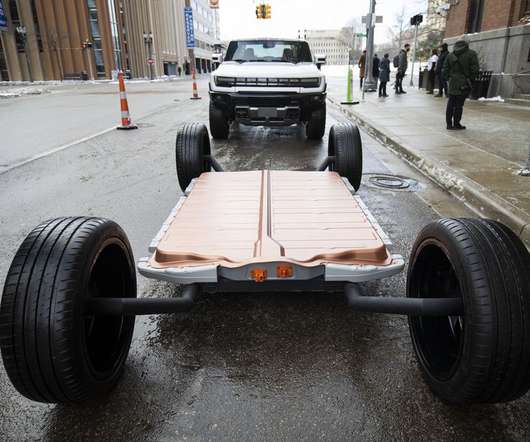New organic cathode for high performance solid-state sodium-ion battery
Green Car Congress
APRIL 22, 2019
Solid-state sodium-ion batteries are safer than conventional lithium-ion batteries, which pose a risk of fire and explosions, but their performance has been too weak to offset the safety advantages. Yao also is a principal investigator at the Texas Center for Superconductivity at UH. —Yan Yao. 2019.03.017.





















Let's personalize your content